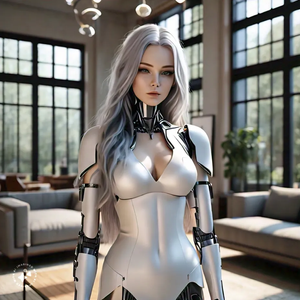
Understanding AI: Transforming the Digital World
In today's fast-paced technological world, artificial intelligence (AI) is more than just a term; it is a disruptive force transforming the digital landscape. But what exactly is AI, and how does it affect how we interact with the world? Let's look at the concepts of AI and how they're affecting a variety of industries.
What is AI?
Artificial intelligence (AI) is a field of computer science that aims to develop robots capable of doing activities that would normally need human intelligence. This includes understanding natural language, identifying patterns, and making conclusions. Consider artificial intelligence to be the driving force behind many of the digital tools we use on a daily basis, such as your smartphone's voice assistant and the recommendation algorithms on your favorite streaming service.
How Does AI Work
Algorithms or complex mathematical formulae and models used to comprehend data, serve as the foundation of AI. These algorithms let machines to detect patterns in data and then make predictions or judgments based on what they have learnt. When you tell a virtual assistant to send a reminder, it utilizes AI to understand, analyze, and reply appropriately.
How AI is Transforming the Digital Landscape
Increased Efficiency
- Automated Processes: AI automates repetitive processes like data input and scheduling, allowing firms and individuals to focus on strategic goals. It is about working smarter, not harder.
- Predictive Analytics: AI uses previous data to foresee future patterns, enabling businesses to make data-driven choices and optimize operations.
Revolutionizing Healthcare
- Advanced Diagnostics: Artificial intelligence (AI) analyzes medical pictures and patient data with high precision, identifying issues that manual reviews may overlook.
- Personalized Treatment: By analyzing genetic data, AI can adapt drugs to specific patients, making healthcare more focused and effective.
Transforming Transportation
- Self-Driving Cars: Self-driving cars use artificial intelligence to assess sensor and camera data and assure safe navigation. It provides a look into a future in which commuting may be entirely hands-free.
- Traffic Optimisation: Artificial intelligence improves traffic flow and route planning, decreasing congestion and making your everyday journey easier.
Enhancing Financial Services
- Fraud Prevention: Artificial intelligence algorithms identify irregularities in financial transactions, reducing fraud and protecting personal information.
- Smart Trading: In the stock market, artificial intelligence (AI) analyzes data fast to make trading decisions, maximizing investments and improving market efficiency.
Fueling Innovation Across Industries
- Creative Material: Artificial intelligence creates stuff like articles, art, and music, pushing the boundaries of creativity.
- Accelerating Research: In scientific study, artificial intelligence analyzes massive amounts of data, identifies trends, and generates new ideas, speeding progress in a number of fields.
Looking Ahead: The Future of AI
AI is not only altering the present, but also preparing for the future. As technology advances, AI will become more integrated into our daily lives, hastening innovation and transforming industries. Understanding and harnessing AI capabilities will be important in navigating this changing environment.
To sum up, AI is more than simply a technological trend; it signals a fundamental transformation in how we interact with the digital world. AI is not only changing the game, but also inventing new ones by enhancing user experiences, increasing efficiency, and promoting creativity. Welcome to the future, where AI will drive the digital revolution.





